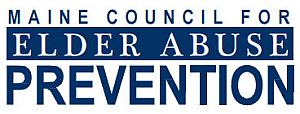FAQs
In order to avoid becoming a victim of elder abuse, you first need to know what it is and who it affects. Then, take action to reduce your chances of becoming a victim.
You can find some helpful information about the different types of abuse and what it can look like under: "Learn about Elder Abuse."
Can elder abuse really happen to me?
Elder abuse affects people of all ethnic backgrounds and social status, and both men and women can be victims. However, research has shown that certain people are at a greater risk than others. Older women, socially isolated older people, older people with cognitive impairments or dementia, and older people with substance abuse issues may be more at risk than others.1
Who are the abusers?
The majority of elder abuse occurs at the hands of the victim’s family members. Usually the abuser is the victim’s spouse or adult child.
What can I do?
Take action to reduce your chances of becoming a victim of elder abuse. Most importantly, know your rights and do not be afraid to stand up for yourself. Also, stay involved in your financial affairs—don’t rely on others to review your bank statements. Be confident that you can make decisions for yourself.
The National Center on Elder Abuse suggests the following:
- Stay busy and engaged in life. Try not to be come isolated. Cultivate a strong support network of family and friends.
- Take good care of yourself – for life. Older adults in declining health can become more vulnerable to abuse because of the increasing dependence.
- Be aware of the link to addiction problems. People who drink too much or who use other drugs are at a high risk of being abusive. Reach out to support groups.
- Refuse to allow anyone, even a close relative, to add his or her name to your bank account without your clear consent. Never make financial decisions under pressure. Avoid signing over money or property to anyone without first getting legal advice.
- Assert your right to be treated with dignity and respect. Be clear about what you will and will not tolerate, and set boundaries. You have the right to make your own decisions.
- Trust your instincts. Listen to the voice inside you when it calls out something is not right. Ask for help if you need it.2
- It is also a great idea to plan. Talk with family members, friends, and professionals who you trust and plan for your future. You can find helpful information about planning for your future on the Legal Services for Maine Elders' Elder Rights Handbook website.
Where can I find more information about elder abuse prevention?
The National Center on Elder Abuse
National Center on Elder Abuse: Protect Yourself from Abuse, Neglect and Exploitation!
- National Institute on Aging. Elder Abuse.
- National Center on Elder Abuse Prevention. (2005) 15 Questions and Answers about Elder Abuse. Washington, D.C.
